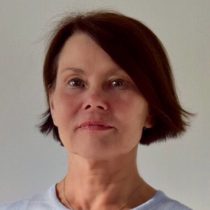Karolinska University Hospital
Area of expertise and Healthcare Provider’s contribution to care for patients within the MetabERN Network
The Karolinska University Hospital is one of the largest University Hospitals in Europe and together with Karolinska Institutet it forms the largest site for health care, research and medical education in Northern Europe.
We believe that patient care, research, innovation and education must all play equally strong roles in our effort to extend and enhance people’s lives. As a major teaching hospital we educate and train tomorrow’s medical specialists and health care professionals.
The Karolinska University Hospital has 1600 beds, 15800 employees and takes care of 1.6 million patient visits per year.
The Unit for Inborn Error of Metabolism (IEM) at the Karolinska University Hospital consists of several clinical multidisciplinary teams that provide diagnostics and clinical care for pediatric and adult patients with all types of IEM: the pediatric metabolic team, the pediatric neurometabolic team, the adult metabolic team, the adult neurometabolic team, the porphyria team, and the diagnostic laboratory for IEM (CMMS).
The laboratory provides national newborn screening for 24 disorders, comprehensive biochemical diagnostic services, functional enzyme analysis, genetic investigations including Sanger sequencing and next generation sequencing/whole genome seq/NGS panels, seq of the entire mitochondrial genome, biochemical and molecular diagnostics for mitochondrial disorders.
The clinical teams are multidisciplinary and include several health care professionals – physicians, nurses, psychologists, dieticians, social health care workers, geneticists/molecular biologists/clinical chemists/physiotherapists, speech therapists, and radiologists.
The Unit for IEM performs clinical and basic research on inborn errors of metabolism. We have developed WGS for fast and high throughput clinical use for more than 660 genes involved in IEM.
Diagnostic procedures are based on a careful evaluation of the phenotype (clinical and biochemical) and genetic testing. For patients whose phenotype is not yet associated with a known genotype we provide whole genome sequencing. We may thus provide families with diagnoses of novel clinical entities, molecular diagnoses, adequate genetic counselling and prenatal diagnosis.
We are a national referral centre for IEM and we support our collaborating teams and clinicians outside the hospital by giving diagnostic advice, by sharing information on our clinical routines, by giving lectures and providing the referring clinics with detailed instructions for patient care and recommended follow-up and diagnostic procedures. In addition, we provide care and consultations for patients with IEM 24/7 via a national telephone consultation line.
Specific treatments and interventions provided by the HCP
Patients are assessed by multidisciplinary teams as a clinical routine. We provide neonatal screening, biochemical and genetic diagnostics for IEM.
The Karolinska University Hospital provides specialized care 24/7 all year around for IEM. There are emergency wards for adult and pediatric patients and admission to wards and intensive care units at all times. Patients from other parts of Sweden and from abroad can be transferred to the Karolinska University Hospital for highly specialized care. Karolinska provides transportation with specialized teams for severely ill neonatal, pediatric and adult patients. Transportation is provided with intensive care equipped bus, helicopter and airplane (PETS – Pediatric Emergency Transport Service).
The Karolinska University hospital provides care at all levels for rare IEM – specialized outpatient clinics, wards, intensive care units for neonates, children and adults, and pregnant women with metabolic disorders. We provide ECMO and hemodialysis.
The Karolinska University hospital provides transplantation of organs – bone marrow (HSCT), liver, kidney, enzyme replacement therapy, prenatal and pre-implantatory diagnostics.
In addition, ambulatory and rehabilitation services are provided for neonatal, pediatric and adult care. Social services are provided by social workers for all patients and families.
Karolinska vägen 37A(QB83), 17176 Stockholm, Sweden



